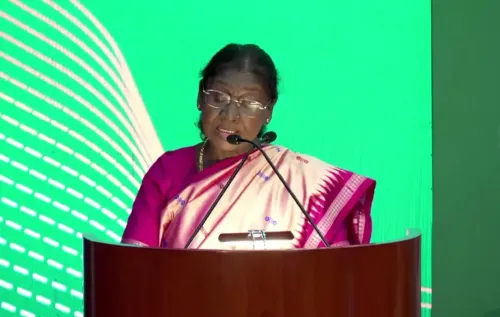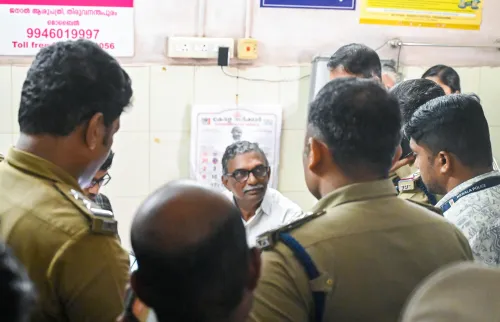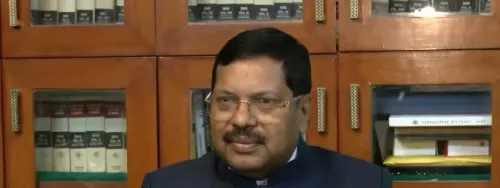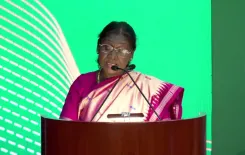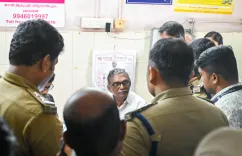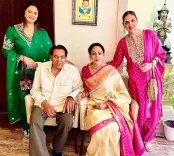Is There No Government Interference in the Judiciary’s Decisions?

Synopsis
Key Takeaways
- No government interference in judiciary, according to former CJI Gavai.
- The collegium system operates independently, considering multiple inputs.
- The Constitution's basic structure is protected from parliamentary amendments.
- Judges must base decisions on law, not public opinion or social media.
- Gavai reflects on a fulfilling tenure as CJI.
New Delhi, Nov 27 (NationPress) In an exclusive conversation with IANS, former Chief Justice of India (CJI) B.R. Gavai emphasized that there is no government interference in the judiciary's operations or its verdicts.
His comments arise amidst ongoing accusations from various political figures, notably Rahul Gandhi, the Leader of the Opposition in the Lok Sabha, who has repeatedly alleged that the BJP and RSS have an undue influence over constitutional institutions.
Gandhi has claimed on numerous occasions that the judiciary is subjected to pressure from the government headed by Prime Minister Narendra Modi.
Former CJI D.Y. Chandrachud previously addressed such criticisms, asserting that courts should not be perceived as opposing entities, but rather as institutions that review laws without usurping the role of elected officials.
During the interview with IANS, Gavai refuted claims of governmental interference and elaborated on the collegium system's functioning.
“There is no government interference. When the collegium reaches a decision, multiple factors are taken into account. Inputs from the executive, the Intelligence Bureau, and the law ministry are all part of this process.
“Likewise, opinions from consultee judges, relevant chief justices, chief ministers, and governors are also considered. After comprehensive discussions, the collegium arrives at its independent decision. This does not imply that the collegium operates under coercion,” he clarified.
Addressing worries regarding the safety of the Constitution, former CJI Gavai referred to the pivotal 1973 Kesavananda Bharati ruling, which established the basic structure doctrine.
He remarked, “This judgment clarified that Parliament lacks the authority to amend the Constitution’s basic framework. Any fears contrary to this are unfounded.”
Reflecting on his time in office, Justice Gavai expressed satisfaction.
“I am completely content with my time as CJI. I feel fulfilled and do not perceive any unresolved ambitions,” he stated.
He also discussed the impact of social media on public discourse and judicial independence.
“I do not engage with social media. A judge must never render a decision based on public sentiment. Once the facts, documents, and evidence are presented to the court, the ruling should adhere to the law—rather than being swayed by social media or public expectations,” Justice Gavai explained to IANS.
Justice B.R. Gavai, the 52nd Chief Justice of India, boasts a rich legal career. He began his legal practice in 1985, growing up in a family devoted to social activism, which instilled in him a profound respect for the rule of law. Throughout his career—as an advocate, judge of the Bombay High Court, Supreme Court justice, and finally as CJI—Justice Gavai exhibited unwavering commitment to judicial integrity and efficiency. His rulings have sparked conversations both in courtrooms and on digital platforms, significantly impacting Indian jurisprudence.
He was sworn in as the 52nd CJI on May 14, succeeding Justice Sanjiv Khanna. His appointment, marked by being the first Buddhist and only the second Chief Justice from the Scheduled Caste community after Justice K.G. Balakrishnan, was recommended by Justice Khanna on April 16 and sanctioned by the Law Ministry on April 29.

